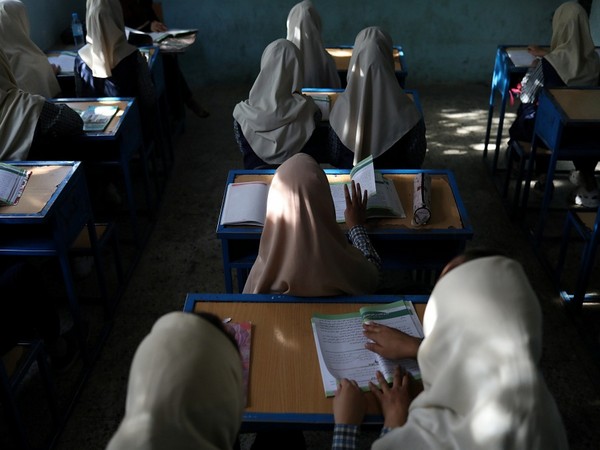Unlawful denial of girls' right to education in Afghanistan impacting future of country: UN experts
Combined with the dire economic and human rights situation in the country, the consequences are enormous.

UN experts* today said the ongoing unlawful denial of girls and young women’s right to education in Afghanistan marks a global nadir in education, impacting an entire gender, a generation and the future of the country. They issue the following statement:
“On 22 March 2023, schools should be reopening to girls across Afghanistan. Instead, it appears that for the second successive school year teenage girls will be banned from resuming their studies - making Afghanistan the only country in the world that forbids girls and young women from attending secondary school and places of higher education.
Education is an enabling right, which is crucial in and of itself and for realising other human rights such as the rights to work, to an adequate standard of living, to health, to participate in society and communities, to equality before the law and to fundamental freedoms. Denying this right to half the population effectively denies women and girls most other human rights.
The Taliban de facto authorities have no justification to deny the right to education, on any grounds, including religion or tradition. Being a state party to United Nations human rights treaties, notably the Convention on the Rights of the Child, the Convention on the Elimination of Discrimination Against Women and the International Covenant on Economic, Social and Cultural Rights (ICESCR), Afghanistan is obliged to respect, protect and fulfil the right to education without discrimination on the basis of gender or any other ground, irrespective of the authority in power.
The Taliban denied women and girls their right to education during their initial rule in the country between 1996 and 2001 and after seizing power for a second time in 2021, girls beyond puberty were again denied their right to education. Both times, the ban on girls’ education was introduced as a temporary measure. However, during the first period the ban was not lifted and unless the Taliban fulfills its promises to reopen secondary schools and universities immediately, it must be concluded that they have no intention of doing so.
There are no longer safe spaces for girls to meet, learn and just be children. If the ban on education continues, life outcomes for girls in particular, but also for all children, will continue on a negative trajectory and recovery will take decades. We cannot let this happen.
Combined with the dire economic and human rights situation in the country, the consequences are enormous. Since the ban on education for girls was imposed, rates of child marriage and child labour have increased, as have reports of children being medicated to overcome hunger, and even dying from malnutrition.
Even if the ban is reversed, we are concerned about the quality of education that will be provided for girls as well as boys. Disturbing reports from boys’ secondary schools highlight the replacement of qualified professional teachers with religious teachers, with significant changes in school curricula, and a limited provision of school subjects.
We salute the brave women, children and men for continuing to protest the ban on women and girls’ access to education and echo their calls for the immediate reversal of the ban. We condemn in the strongest terms, the denial of education to women and girls, and accordingly call on the Taliban de facto authorities to:
Immediately reopen all secondary schools and places of higher education to girls and young women.
Intensify efforts to ensure the education system provides quality education according to international standards for all girls and boys in all areas by securing qualified professional teachers, and ensuring that the school curriculum is in line with article 13 (1) of ICESCR.
Protect, support and monitor girls’ safety in and around schools.
Remove all restrictions on female employees of the education sector to enable them to continue their pivotal role in safeguarding education.
We call on the international community to:
Intensify calls on the Taliban to reopen all schools and places of higher education to girls and young women in accordance with the standards referred to in recommendation 2 above and, if so:
Fund equal and quality education for girls and boys in Afghanistan.
Facilitate the flow of finances to support the formal education system.”
- READ MORE ON:
- Taliban de facto
- education
- Afghanistan










